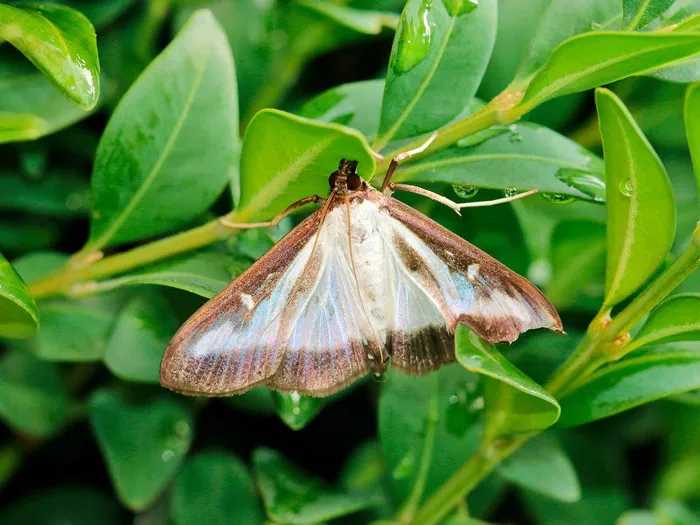An invasive moth species known for its voracious appetite is causing widespread damage to boxwood plants in multiple Canadian provinces, experts warn.
Boxwood has long been cherished by garden and landscape enthusiasts for its durability, year-round greenery, and versatility in topiary and hedging. However, this beloved shrub is under siege from the box tree moth, a recent arrival that has been devastating boxwood populations across at least five provinces.
Dr. Jeanine West of Landscape Ontario emphasized the significance of boxwoods, noting their resilience and aesthetic value. “Boxwoods are amazing plants. They survive various conditions and can be shaped into beautiful forms that last for decades,” she stated in an interview with The Weather Network. “We’re committed to preserving their presence in Canada.”
The box tree moth, originating from Asia like its host plant, was first detected in Toronto in 2018, marking its initial appearance in North America. Since then, efforts by grower groups, landscape organizations, and government agencies, supported by entomologists, have attempted to contain and manage its spread. Despite these efforts, the moth has expanded its territory beyond Ontario, infiltrating regions as far east as Quebec, Nova Scotia, New Brunswick, and Newfoundland.
“We’re dealing with an invasive species that targets only boxwood,” West explained. “While it poses no direct threat to humans or other plants, its unchecked appetite poses a serious threat to our landscapes.”
Recognizing the severity of the situation, the Canadian government issued warnings about the box tree moth and urged vigilance in reporting sightings to the Canadian Food Inspection Agency. Efforts are now focused on preventing its westward spread into regions like British Columbia, where boxwoods are also popular but currently unaffected.
West advised against transporting boxwood plants across regions, emphasizing the potential for unintentional spread. “Avoid moving plants, especially boxwoods, to new areas,” she cautioned. “Preventing its spread is crucial to safeguarding our landscapes.”
As the box tree moth continues its relentless march across Canada, efforts intensify to mitigate its impact and preserve the beloved boxwood from further devastation.


